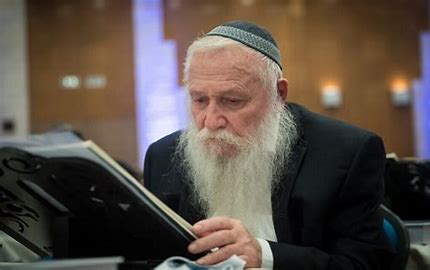To fully appreciate the pivotal influence that Rabbi Chaim Druckman had on the Religious Zionist Torah world, we need only to listen to his own words at a 90th birthday celebration just a month ago in Jerusalem’s Binyanei Ha’Umah. Rabbi Chaim apologized to the thousands who came for all of their efforts (“You didn’t need to, I simply reached ninety years old,” he said modestly) and then described the world of his youth.
“I remember a situation in which a youth finishing eighth grade would throw his hat off (we didn’t go with kippot). A childhood friend of mine, a genius who became a professor, said that he thinks we are the last generation putting on Tefillin. He said that this was the reality, everyone was thinking of leaving [Torah]”
Surprisingly, Rabbi Druckman ascribed the positive changes to Bnei Akiva. “How did things change? It was Bnei Akiva. Today there are knitted kippas everywhere and everyone knows that they are the best ones.”
Yet Rabbi Druckman was not exaggerating. The much-derided youth movement was actually the spiritual salvation of a generation of youth dispirited by the Holocaust, disconnected from Torah by lack of exposure to yeshivos but rejuvenated by the establishment of the state and searching for religious meaning in the new reality.
Rabbi Druckman and his friends came to Merkaz Harav after their army service and were among the founders of Kerem B’Yavneh yeshiva in 1953 with Rabbi Chaim Goldwicht Zts’l. They literally created a generation of rabbis and rashei yeshiva from the Eitanim Bnei Akiva group which Rabbi Druckman himself led, including Bet El Rosh yeshiva Rabbi Zalman Melamed, Kiryat Shmona rosh yeshiva Rabbi Tzefania Drori and many others. This generation in turn had thousands of disciples who have now established hundreds of Religious Zionist educational institutions and yeshivos.
Rabbi Druckman himself studied and taught at Merkaz Harav until he was asked by Rabbi Tzvi Yehuda Kook to head the Ohr Etzion yeshiva high school. In 1977 he founded the Yeshiva Gevoha- Ohr Etzion, which he headed until his death. The institution has produced many outstanding alumni and Rabbi Druckman received the Israel prize in 2012 for his lifework, with the judges commending him for his “significant and important contribution to uniting parts of the nation, through true and intrinsic love of Israel. In all his many and varied frameworks of activity he was the lodestar who educated his students to integrate their Torah with the land of Israel, marking their daily life with integration at all levels of Israeli society.”
Rabbi Druckman also served for a short period as a Knesset member for the Religious Zionist party, a splinter group from the original Mafdal party. During the last decades of his life he was essentially the uniting force within Religious Zionism, which has split almost irrevocably between the Chardali [chareidi religious zionists] and the more liberal elements in the group. Rabbi Druckman was esteemed and revered by all of them, accepting his authority on all public matters.
During the course of his long and fruitful life, Rabbi Druckman was miraculously saved three times from almost certain death. As a child born in Kitov, Poland, Rabbi Druckman was on the Russian side of Poland and was sent to a Communist school which forced him to study on Shabbos. After the Germans invaded, Rabbi Druckman and his parents hid in an underground hole in the non-Jewish section of the city. In summer 1942 the family succeeded in fleeing to Chernowitz, Rumania. Later his parents sent him with a childless family who had a certificate to go to Israel. Initially they were supposed to go on the Mafkura but were delayed and instead went on another ship. The Mafkura was torpedoed by the Germans and almost all of its passengers drowned.
In 1993 Rabbi Druckman was travelling in the South Hevron hills to give a Torah shiur. Since he did not drive, Rabbi Druckman reclined in his seat while his driver, Efi Ayoubi, drove. A terrorist opened fire on the vehicle, shooting 28 bullets at the car. Ayoubi was killed on the spot but Rabbi Druckman escaped with light injuries. He later said that he thought Ayoubi was alive as the car continued to drive until it stopped at the edge of a steep cliff.
Rabbi Druckman said after the incident that “every person must do something with his life and certainly one who has been gifted his life.” He lived by this motto and sought constantly to build and educate the future generation of Religious Zionism.
Rabbi Druckman is survived by his wife, nine children and almost 200 descendants. May his memory be blessed.

1 comment:
He was our Rav in august 1976 at the European Seminar Torani of the Bnei Akiva in switzerland. He influence me indirectly to be the first student of Mahal Hesder program in 1978. Before it was just Kibbutz and Army
Post a Comment